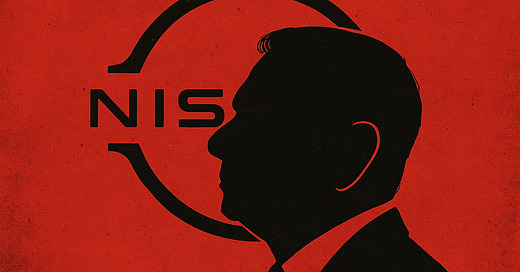The Fall of Nissan’s King
Imagine a CEO so powerful that his boardroom could circle the globe—but one day, that boardroom becomes a courtroom. This is the real-life corporate saga of Carlos Ghosn, the flamboyant auto titan who ran both Nissan and Mitsubishi, and the dramatic legal earthquake that followed his shocking arrest in Tokyo in late 2018. Buckle up for a ride through betrayal, boardroom battles, and a courtroom showdown that changed corporate governance in Japan and beyond.
Background
Carlos Ghosn was once hailed as the savior of Nissan. After orchestrating the Renault-Nissan-Mitsubishi alliance, he was credited with reviving struggling carmakers and forging one of the world’s largest automotive groups. Ghosn was a celebrity CEO: regularly featured on magazine covers, his leadership celebrated in business schools.
But behind the scenes, tensions simmered. Renault, owned partially by the French government, was seen as the unlikely kingmaker in the alliance, despite Nissan’s larger sales. Japanese executives felt French overreach, but Ghosn’s iron hand and global stature kept the alliance glued together—until November 2018, when Japanese authorities arrested Ghosn at Tokyo’s Haneda Airport.
Prosecutors claimed Ghosn underreported his compensation by tens of millions of dollars and misused company assets. Ghosn argued it was a coup—a corporate assassination plotted by Nissan insiders unwilling to cede control to Renault.
The Case
The legal drama unfolded as both a corporate power struggle and a test of Japanese justice. Prosecutors painted Ghosn as a greedy executive who lined his pockets and used company money for personal gain. The evidence: internal Nissan memos, financial records, and testimony from top Nissan executives who turned against their former boss.
Ghosn’s defense challenged the process from the start—he was held for months without trial, in solitary confinement, and claimed he was denied basic rights. His attorneys argued the charges were concocted to oust him and preserve Nissan’s independence. The media frenzy around the case highlighted deep differences between Japanese and Western notions of corporate governance and due process.
Then—plot twist!—in December 2019, Ghosn pulled off a spectacular escape, reportedly smuggled out of Japan in a box on a private jet to Lebanon, where he remains a fugitive. Japanese courts proceeded against his alleged accomplices, but the star defendant was gone.
Resolution
Ghosn’s dramatic flight left the corporate world agog and the courtroom story unfinished. Japanese authorities continued prosecuting Nissan and several executives who aided Ghosn. Nissan itself reached a plea deal, accepted a hefty fine, and pledged to reform corporate governance. The Ghosn affair forced regulators and companies globally to scrutinize board oversight, executive compensation, and whistleblower protections.
Internationally, the case highlighted:
Differences in labor law and prosecutorial powers between Japan and Western nations
The vulnerability of cross-border corporate alliances to internal politics
The risks for foreign executives in countries with different legal traditions
Takeaway
The Ghosn saga isn’t just about one man’s downfall—it’s a cautionary tale for any global business leader. Corporate power isn’t just about numbers, but about navigating cultures and loyalties. Boardrooms can quickly become courtrooms, and alliances built on shaky foundations can collapse overnight.
As global businesses expand, the Nissan-Ghosn case reminds companies to invest in transparency, foster trust across cultures, and ensure that checks and balances exist not just on paper, but in practice. In the end, good governance isn’t about the heroics of one leader, but the health of the institutions they steer.




